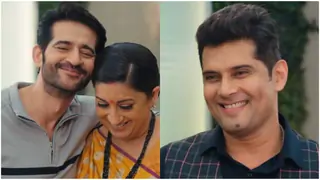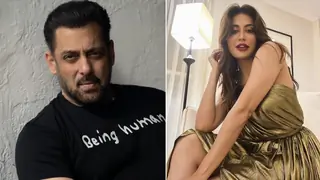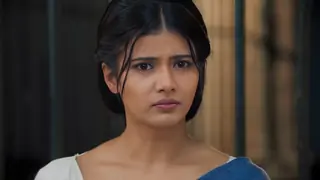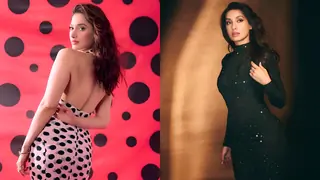| | Filmfare -- July 2000 issue... HIS MUSIC TOUCHED MY SOUL
Lata Mangeshkar recalls Bhaiyya Madan Mohan
The point driven home by Lata Mangeshkar's recent con-cert in Mumbai was that the Lata-Madan Mohan combi- nation was unbeatable. From Unko yeh shikayat hai ki hum kuch nahin kehte to Main to tum sang nain milake and Lag ja gale se to Ruke ruke se qadam, every single Lata-Madan Mohan composition is timeless. To find out more about the creative genius who never got his due in his lifetime, I spoke to his melodious muse. Over to Lata Mangeshkar: It seems like yesterday when I first met Madan bhaiyya. I'd just started my career as a playback singer and had gone to Filmistan studio for a recording. That's where we met. He was the son of the owner of Filmistan stu he saw little recognition in his lifetime. Today, after he's gone, no other composer is admired as much as he is dio, I think he was an assistant music director at the time. We sang a song about love between a sister and brother for Shaheed. The song was neither featured in the disc nor the film. Perhaps it was meant to bring Madan bhaiyya and me together.
Soon after this incident, he came home on Raksha Bandhan and de clared, "Tuney aur maine bhai-bahen ka gaana gaaya hai. Tu mujhe raakhi baandh." The year was 1948. How time flies! After some months, Madan bhaiyya bagged his first assignment as a music director, Aankhen. I don't know why, but I told him I wouldn't sing for him in Aankhen. I turned him down without even listening to his compositions. I don't know what was wrong with me. Perhaps I did that because I was busy running around trying to consolidate my career. I used to live at Grant Road. Every day I'd catch a local train and head for the other end of town to Malad, Andheri or Goregaon. Maybe I said no to Madan bhaiyya's first film because I didn't have time. He was very hurt. "Tu raakhi baandhti hai aur tuney mere hi gaane ko na kahaa?" Anyway I started singing for him thereafter and never stopped. Madhosh, Adaa, Baaghi were some of his early films that I sang for. Dekh Kabira Roya was one of our earliest hits. His songs would almost invariably succeed even though the films didn't always run. One day he came to me and said, "Main Punjab jaa rahaa hoon shaadi karne." He showed me a picture of my bhabhi-to-be and asked whether I liked her. I said she was very pretty. After the wedding, he held a small reception in Mumbai. Naushad saab, Suraiya and I were some of the invitees. I even have a photograph of the occasion. I became a regular visitor at Madan bhaiyya's home in Khar. Soon his children were born. He loved to cook and enjoyed good food. He frequented our home too. His home was very close to my new one. His son Sanjeev still lives there.
He also had another flat opposite his residence which we used for rehearsals. He would compose a tune and con duct a small rehearsal right there in his home. Madan bhaiyya always gave his singers the freedom to improvise. I had the same freedom while working with Shankar-Jaikishen, especially for Raj Kapoor's films. Did I put in a special effort for Madan bhaiyya's tunes? I try to put in a special effort for every composer. The songs I sing are mine, aren't they? But Madan bhaiyya's tunes were different from the music prevalent in those days.
There were so many stalwarts back then. Each had his own individual style. Everyone did his best even though the remuneration wasn't all that attractive. Work in itself was the reward. There was no backstabbing or bitching. A composer once said, "It's hard to decide whether Lata Mangeshkar's voice was made for Madan Mohan's compositions, or vice-versa." Perhaps I have the knack of knowing exactly what a composer wants. But there's one more thing: if the song is good, the singer is inspired to sing well. Madan bhaiyya's ghazals were unlike anything I've ever heard in my life. I've never heard such ghazals by anyone else, neither have I sung such compositions for any other composer. His style of composition was unique. He knew a little bit of classical music since he had heard many distinguished artistes like Bade Ghulam Ali Khan while working at a radio station. To compose like Madan bhaiyya was a gift from God. His music touched my soul. He knew precisely how to phrase a ghazal. Why just ghazals? He composed many beautiful songs for me like Ja re badra bairi jaa and Jiya le gayo re maro sanwariya. But his ghazals were a class apart." People thought of him as hot-headed. But he was a softie. Whenever he felt very hurt or very happy, he'd have tears in his eyes. He was very possessive about the people whom he loved. But to express one's feelings for others is also an art. Madan bhaiyya lacked that ability. He couldn't express his love for others. I could understand his feelings and attitudes. But those who didn't know him well couldn't understand him. He never ran after awards or recognition. But when he didn't get the Filmfare award for Woh Kaun Thi he was upset. I remember we were recording some days after his mother's death. I told him how sorry I was that he didn't get the Filmfare award for Woh Kaun Thi I felt he deserved
DID OTHER singers really resent my tuning
with Madan bhaiyya? Fortunately,
such talk never reached my ears
Anpadh Woh Kaun Thi Dastak Mausam ing with Madan bhaiyya? Fortunately, such talk never reached my ears (laughs). He perhaps felt, "Jo main apne gaane mein chahta hoon woh shaayad Lata kar sakti hai." He would always say, "Tu mujhe na mat kaha kar." Since I used to be so busy in those days I used to be exhausted. In addition, there was the sinus problem. So even Madan bhaiyya's recordings would get cancelled. Iwas very famous for that, you know. Composers would say, "Lata ki re-cording hai. Pataa nahin hogi ya nahin."' Even if my sinusitis surfaced slightly I would cancel my recording. Singing With the Woh Kaun Thi heroine Sadhana
PEOPLE thought of him as hot-headed. But he was a softie. Whenever he felt very hurt or very happy, he'd have tears in his eyes
it more than any other nominee that year. He replied, "Tu mere liye yeh sochti hai yehi mera award hai." I remember when he recorded the song Naina barse rim jhim for Woh Kaun Thi, the whole thing became quite a joke. I was indisposed with a severe attack of sinusitis. He shot the song on Sadhana in Shimla in his own voice. Onlookers were stupefied. Later I dubbed the song. Even when he recorded Maai ri in Dastak, I was ill. Because of my sinus problem I often had to cancel recordings. Some composers chose to get their numbers recorded by others. Others waited for me, even demolishing sets if I wasn't up to it.
Believe it or not, all those melodies that make you swoon were re corded after very few rehearsals. Neither Madan bhaiyya nor I had the time for too many rehearsals. Just one or two rehearsals, that's it. He never moped about the lack of recognition. But deep within he was determined to prove his worth.
He saw little recognition in his lifetime.
Today, after he's gone, no other composer
is admired as much as he is.
He was perhaps destined to be recognised after his death.
Singing without any technical support in those days was no easy task. And I wasn't willing to compromise on the quality of my singing one bit. I remember some time before his death he came to a recording with his head and arm swathed in bandages. I was disturbed. He said he'd been in a road accident at Khandala. Though his injuries were quite serious, he still went ahead with the recording. I had gone to the United States for my concerts. On my way back, when I was in London, Someone told me told that a very big music director had passed away. He didn't know the name. I rang up home. Only then did I get to know that Madan bhaiyya was no more. It was a very major personal loss for me. We were like one big family. Even his wife loved me a lot. Whenever they quarrelled, I would mediate between the couple. My relationship with Madan bhaiyya was everlasting. Composer Chitragupta was another family friend. All of us Mangeshkars visited his home regularly and he visited ours too. He wasn't a topnotch music director. But he was highly educated. I was the one to name Chitragupta's son Milind. I loved singing Chitragupta's tunes. Another abiding relationship I shared was with Majrooh saab (Sultanpuri). We were very close. Whenever he was troubled, he shared his problems with me. I remember when I was seriously ill in 1966, Majrooh saab came to visit me every day for several months. He would sit by my side, recite his shayari, have his meal, inquire about my medicines. Not just Majrooh saab, but his wife and children visited as well. Lekin ab Majrooh saab aur Madan bhaiyya jaise log kahan?
|


























